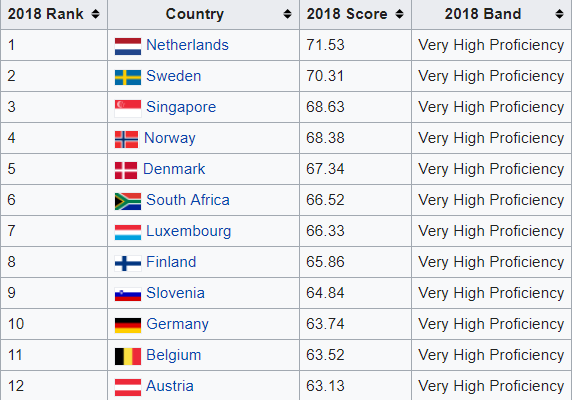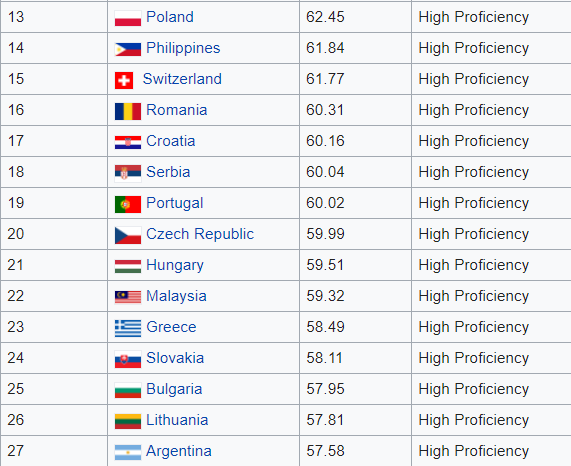Master Pronunciation Of A Foreign Language – How To Learn A Language On Your Own (Part 3)

Why even bother with studying pronunciation?
Well, as always, there are no easy answers. Some say it's important to master the pronunciation of a foreign language. Some say it's a waste of time
The question is - why should beginners and semi-advanced learners care?
There are some obvious benefits - the better your pronunciation, the bigger a chance that native speakers will understand you. It means that there is always some minimal amount of work that has to be done in order to talk with native speakers.
Otherwise, each person will soon get discouraged from talking to you and leave or get black-out drunk to match your level of mumbling.
But what comes next after you reach the level, where native speakers have no problems understanding you? Does it make sense to reach for the Holy Grail of learning languages - speaking with no accent?
Considering the amount of time needed, I dare to say no. It's better to spend this time mastering grammar and vocabulary. I have never seen any point in pronouncing everything perfectly while still mixing up words and butchering grammar.
Many people claim to have achieved the level where there is no difference between them and native speakers. I believe that very often this is simply an exaggeration.
Typically, the longer someone talks to a native speaker, the bigger the chance that "the truth gets revealed".
Ultimately, I'll leave that for you to ponder. So what should you do to achieve good pronunciation as quickly as possible?
And to avoid such mistakes:
0. Brief (And Not So Boring) Theoretical Intro
It won't take long, I promise. If you're interested in practical tips, move to point 1.
To speak clearly, we must first understand what the (highly simplified) building blocks of pronunciation are:
As you can see, mastering pronunciation requires learning the aforementioned elements of a language of your choice.
Now, how to do it practically...
1. Identify Alien Sounds
As children, we have the ability to distinguish different sounds and "assemble" them into words (in other words, we combine phonemes into morphemes/words).
The sad part about learning new languages is that we mostly lose this ability when we grow up.
It means, that without preparation very often we won't even know that we pronounce something incorrectly.
That's why the first step to get familiar with pronunciation is to identify the sounds which you might even be not aware of.
How to do it
Look it up in a dictionary

Every good dictionary has a description of sounds typical of the given language. What's more - as I've written before, always try to choose a dictionary which includes phonetic transcription of words.
Google it
" Language x (e.g. Swedish) phonology" will usually deliver best results.
Visit mylanguages.org
It covers 80+ languages. Choose the one you want and click "alphabet".
Now, after using any of these methods, you'll end up looking confused at the strange set of characters. They are part of the International Phonetic Alphabet. They look scary but are not so difficult to learn.
To become even more aware of the differences between your native and target language, you should learn the sounds of English language.
Here you can find an interactive phonetic chart for English.
2. Train Your Mouth To Pronounce Sound
Congratulations, by now you should know more or less, what sounds you should pay attention to. To imitate them as precisely as it's only possible, you need (ideally) combination of a couple of methods.
Learn how to produce sounds mechanically
It's a great starting point - grab a dictionary or some textbook and read a description of how you should pronounce given sounds. If the description is accompanied by a picture - even better.
Usually, the biggest problem is how to pronounce vowels. Since your tongue moves up and down, forward or backward, you have plenty of positions to experiment with.
Once (it seems that) you nail the target sound, try to memorize what the position of your tongue and lips was. And don't be too quick thinking that it is over. You have to check it first. (see feedback)
Start small
Choose only one or two sounds to begin with. Let's say that you have no idea how to pronounce /æ/.
You check how to produce this sound on Wiki. Then you pick up a word or two and try to pronounce this sound as closely as possible. Say, this word is "tab".
Once you are sure that the sound is pronounced decently, you can move on to other words.
Sounds like a lot of work but I assure you it's not.
When I was a child I suffered from a really bad speech impediment and couldn't pronounce a truckload of sounds in my native tongue.
Can you imagine how I talked to my parents or friends?
- "mc wohn sdno"
- "Yes honey, of course, we love you"
I used this method to learn how to express myself like a normal human being.
Record yourself
Find some interesting text, grab a microphone or use your mobile and start reading aloud using the aforementioned rules.
How can you tell if you produce new sounds effectively?
It won't be difficult - assuming that you did everything right, your mouth will hurt.
It means that you use muscles which haven't been used before.
Of course, If you're learning a language with a different alphabet, you should learn how to read it first.
3. Learn How To Hear The Sounds

Now, you can start practicing your hearing. You've successfully identified the sounds which are new to you. It's time you started noticing them in sentences!
Such knowledge gives you immediate head-start when it comes to listening to and communicating with foreigners.
Remember, however, that grammar rules concerning your target language might alter your understanding of speech. Some sounds blend, others are silent or reduced.
For example, in French "à" followed by "le" combine to form "au."
4. Be Aware Of Mistakes
It's always safe to assume that you pronounce sounds at least partially incorrectly until you receive some kind of feedback. Such assumption can save you hours and hours of tears and frustration.
5. Feedback
You need final confirmation of how awesome your pronunciation is. And who's better to do it than native speakers?
If you have a tutor or friends who can help you - then great. Ask them all the questions you have and to correct you if there's something wrong.
If you are on your own, try www.rhinospike.com
You can ask native speakers there to record some text for you and then you can use it to compare it with how you speak.
You can also use Google Translate or http://www.forvo.com/ to compare pronunciation of single words. But how will you know that you sound good enough?
You will sound in unison with the recording. Simple as that!
FINAL WORDS
As you can see, learning how to pronounce sounds can be turned into a relatively easy to execute the process. However, as always when it comes to mastering such complex task, the better you try to be, the more time-consuming it is.
And don't beat yourself down, if it doesn't work right away. Good things take time.
A successful man is one who can lay a firm foundation with the bricks others have thrown at him.
If you enjoyed this post, feel free to share it with your friends and join our community!
Done reading? Time to learn!
Reading articles online is a great way to expand your knowledge. However, the sad thing is that after barely 1 day, we tend to forget most of the things we have read.
I am on the mission to change it. I have created over 10 flashcards that you can download to truly learn information from this article. It’s enough to download ANKI, and you’re good to go. This way, you will be able to speed up your learning in a more impactful way.

























